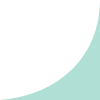Blog
As an Austrian in The Netherlands there is an obvious thing to miss: mountains. Fortunately, that was not my motivation to move here. Ahead of me lies a very different kind of challenge: climbing the academic ladder. Being in the second year of my PhD means I am still in the early days of my scientific career. But determined to get to the top, I consciously take it step by step. Just like I would, when climbing a mountain.

Anna-Karina Felder
PhD Student Wouter de Laat lab, Hubrecht Institute.



Collaborative research leads to higher quality
My scientific career began in Vienna where, while obtaining my Bachelor’s degree, I gained first hand experiences about working in a scientific environment. Being surrounded by international scientists, my ambition to pursue a career in research grew stronger. Having completed my 8-month internship at the IMBA at the Vienna Biocentre, I continued my scientific journey in Basel, Switzerland. By moving abroad, my goal was to experience a different research environment that would further shape me as a young scientist.
"Being surrounded by international scientists, my ambition to pursue a career in research grew stronger."
For my Master thesis, I joined the Friedrich Miescher Institute (FMI). As anticipated, I found myself in a very different setting; at the IMBA I was used to working alongside a lot of other scientists and having access to an exceptional variety of cutting-edge facilities. The FMI itself is a bit smaller, making it feel more like a family. Nevertheless, the close collaborations with the University and Novartis in Basel makes any project seem possible, as experts and all the necessary equipment were readily available. I quickly realized that such an environment truly lets me thrive as a scientist. It became the most important factor in deciding where I was going to take my next step as a PhD student.
Being in my second year of my PhD at the Hubrecht institute, I am happy to realize that I have found what I was looking for; another welcoming research family with many in- and external possibilities to collaborate and share expertise. The FMI and the Hubrecht institute share many similarities. For instance, at both places there is an openness to bring fundamental research towards patients. In my experience this is quite common when it comes to research conducted in the Netherlands and signifies one of the key motivations for me to pursue a PhD training here. It is often not obvious for fundamental scientists to think about patient. Even so it is how we are trained in the lab of my professor, Wouter de Laat. Whenever possible, he looks for connections with our colleagues in the clinic.
In my PhD project I focus on the regulation of gene transcription. The basic principle behind this seems so simple: cells can switch genes on and off. But if you look closer, there is so much we still do not understand. There are many different “switches” affecting a single gene at the same time and these switches influence one another. Disentangling these mechanisms is truly fascinating and requires many skills. Working in teams, collaborating, communicating and, most of all, problem solving. But skills alone are not enough, we must stay on top of novel findings and state-of-the-art technology.
Take genome editing for example. The discovery of CRISPR/Cas was a complete game changer for our field of research. Since its first publication in 2012 as a genome engineering tool, many novel variants and applications have been established. However, where does one start when applying these technologies? And what does one do when encountering problems? In my experience it is always helpful to talk to peers who are working with the same or similar tools. In this regard I highly appreciate being a part of Oncode Institute. I recently joined a masterclass on genome editing, organized by Oncode. I had already joined courses, offered by the university or other organizations during the first year of my PhD. What made the Oncode masterclass stand out is the opportunity to exchange experiences with colleagues from other groups within the organization. I greatly benefitted from the break-out sessions where all participants, junior and senior, were encouraged to ask questions to the respective expert. These kinds of informal sessions make acquiring new skills and building new collaborations very accessible.
Within the Hubrecht Institute and Oncode I have found my new research family. The open and collaborative nature gives me confidence and encourages me to not only climb walls, but also the ladder of science.
Photography by Marloes Verweij, Laloes Fotografie
